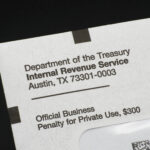By Gregg Cothran, CPA, Business Assurance & Advisory Services Manager

Latest report shines light on broker-dealer audit quality and financial reporting
Background of broker-dealer audit inspections
Beginning in 2015 when audits of broker-dealers first became subject to Public Company Accounting Oversight Board (“PCAOB”) standards, the PCAOB has conducted inspections of a sample of all broker-dealer audits and summarizes the results of their inspections in an annual report.
The findings from these inspections can shed insight into the areas in which the PCAOB is most focused. While the findings are primarily geared to assist audit firms, they can also be useful for the management and audit committees of broker-dealers as they engage with audit firms regarding audit quality and broker-dealer financial reporting.
2021 PCAOB inspection report
The PCAOB’s 11th and most recent inspection report was released August 19, 2022 and included the inspection of financial statement audits with fiscal years ending April 1, 2020 through March 31, 2021. Of the 345 total PCAOB-registered audit firms, the PCAOB selected a total of 50 firms for inspection. When selecting firms for inspection, the PCAOB uses a combination of a risk-based selection methodology (such as the number of broker-dealer audits performed, results from previous inspections, etc.) and a random selection methodology that provides an element of unpredictability.
From the firms selected, the PCAOB then selected 90 total audits for review. The PCAOB noted the number of firms with one or more audit and/or attestation engagement deficiencies remained high at 78%, consistent with 2020.
PCAOB’s inspection report findings
In reviewing the report, Keiter noted the following observations related to auditing financial statements engagements that had the largest percentages of deficiencies and thus reasonably represent focus areas of the PCAOB:
Revenue
While the number of audit engagements with deficiencies related to revenue declined from 47% in 2020 to 33% in 2021, this still represents the largest deficiencies area. The significant deficiencies in this area included instances where firms did not perform any procedures for one or more significant revenue accounts, or did not perform procedures to address the assessed risks of material misstatement for one or more relevant assertions for revenue accounts and disclosures. Additional deficiencies noted included:
- Failing to identify a fraud risk related to revenue or failing to overcome the assumption of revenue recognition as a significant fraud risk. In order to avoid deficiencies in this area, auditors should address the risk of material misstatement through appropriate substantive procedures that include tests of details.
- Failing to plan and design an appropriate sample that was deemed to be representative of the population. This includes not only testing amounts over a certain threshold, but also testing a sample of the remaining balance to ensure the entire population is subject to testing.
- Failing to test the accuracy and completeness of information provided by the broker-dealer as audit evidence either through tests of controls, information, or both.
- Testing a sample size too small to provide sufficient appropriate audit evidence from substantive procedures.
- Failing to sufficiently test necessary user organization controls outlined in the service auditor’s report.
- The PCAOB noted it is always a best practice to ensure the broker-dealer’s revenue recognition and related disclosures comply with the requirements of FASB ASC Topic 606, Revenue from Contracts with Customers, and that revenue is recognized when or as performance obligations are satisfied and in amounts that are consistent with the terms of the broker-dealer’s agreements with its customers.
Going concern considerations
The second largest area of deficiencies resulted from considerations of a broker-dealer’s ability to continue as a going concern. While the number of audits with deficiencies in this area decreased slightly from 30% in 2020 to 27% in 2021, it still represents a large area of focus.
- For any instances in which the auditor identifies one of more factors that indicate doubt over the broker-dealer’s ability to continue as a going concern, the auditor must evaluate management’s plans to overcome the adverse condition. This would include obtaining evidence and reviewing management’s plans to remediate these conditions, such as the intent and ability of other parties to provide financial support to the broker-dealer.
- Additionally, the auditor must ensure financial statement disclosures are sufficient and any required updates to the audit opinion are made.
Expenses and related accruals
The third largest area of deficiencies resulted from the testing of expenses and accruals at 25% in 2021. Specifically, the deficiencies stemmed from firms not adequately testing one or more relevant assertions for expenses and related accrual accounts.
For more detailed information from the PCAOB’s inspection results, please review the full report on the PCAOB’s website:
The Keiter Financial Services Industry team closely monitors these and other industry publications to keep you updated and informed. If you have any questions, please reach out to your Keiter Opportunity Advisor or call: 804.747.0000.
About the Author
The information contained within this article is provided for informational purposes only and is current as of the date published. Online readers are advised not to act upon this information without seeking the service of a professional accountant, as this article is not a substitute for obtaining accounting, tax, or financial advice from a professional accountant.



